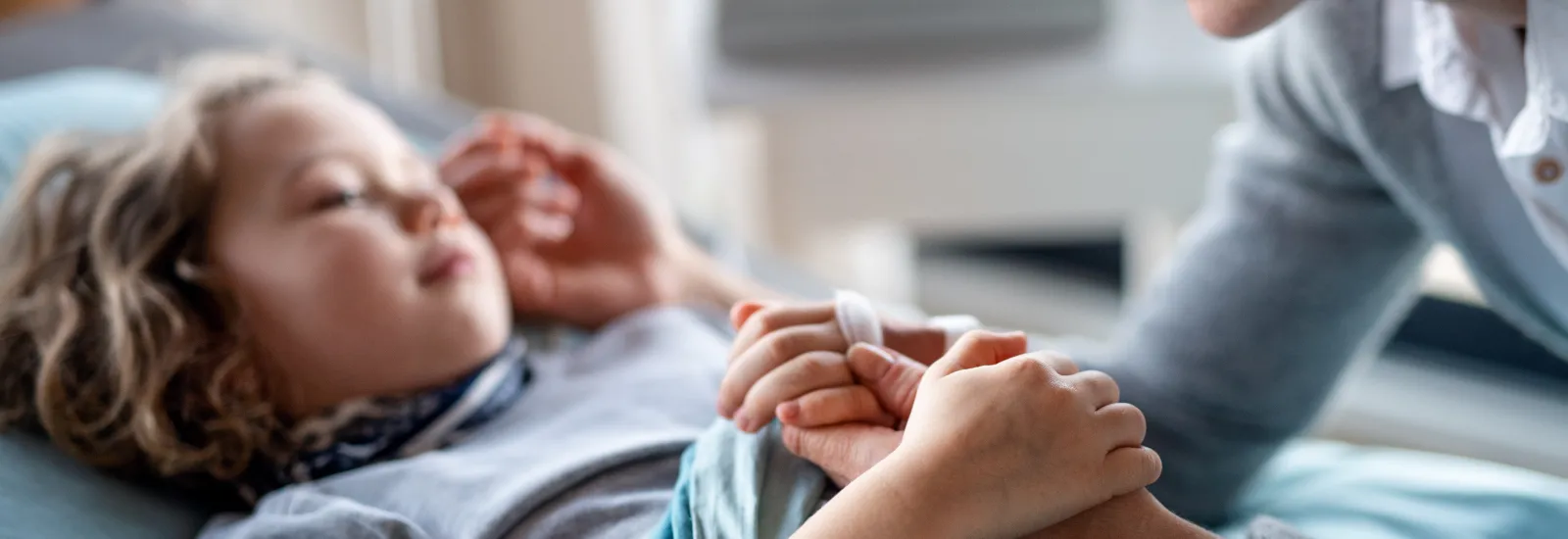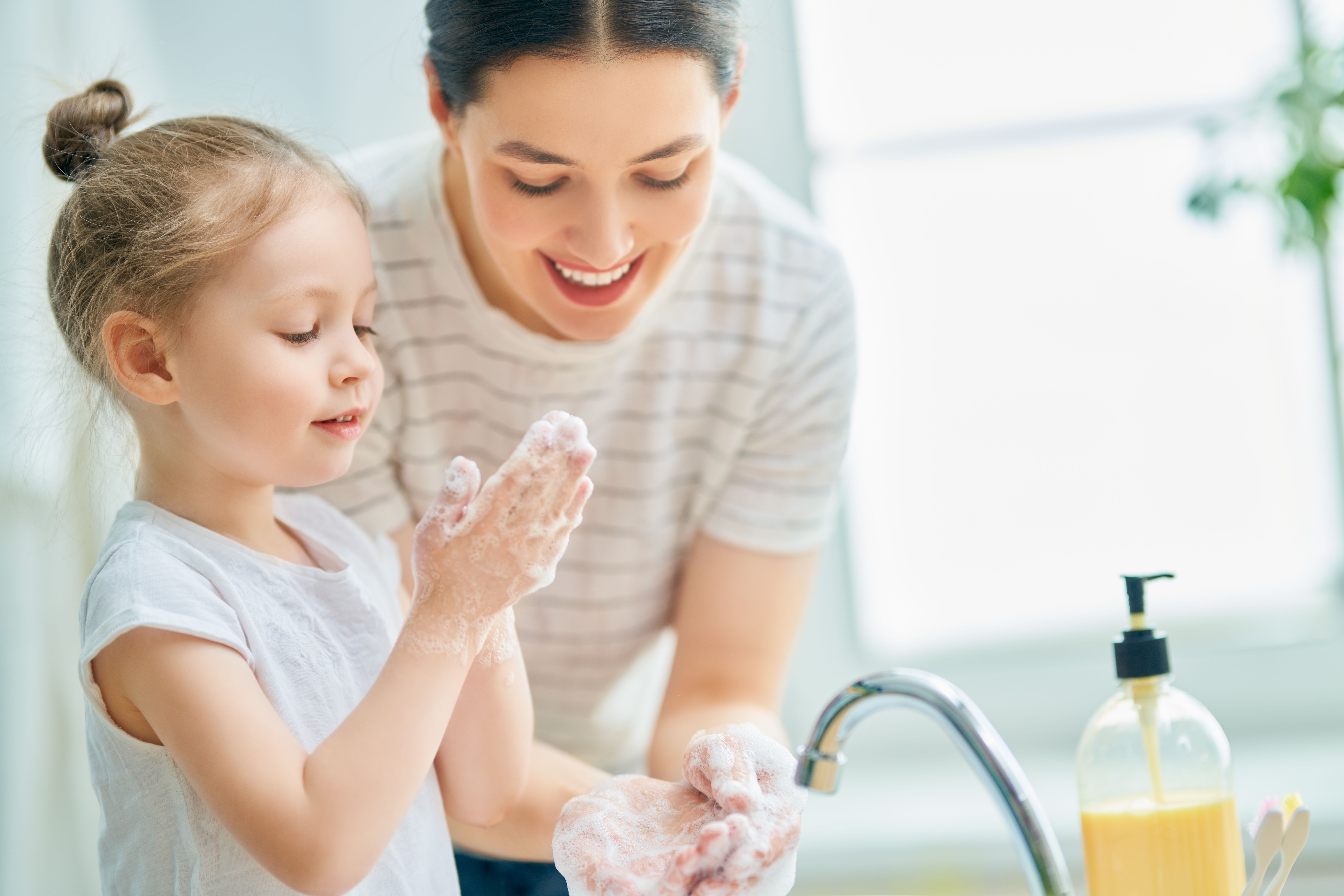
Keeping kids safe during the COVID-19 crisis
Keeping kids safe is always a parent's priority and is even more at the forefront amid the COVID-19 crisis.

If you're a parent or caregiver to a young person, you know the mama tiger or papa bear response that kicks in if you need to protect your kids. Keeping kids safe is always a parent's priority and is even more at the forefront amid the COVID-19 crisis.
While there are many unknowns, focusing on what can be done is always the first step in any uncertain situation. As a parent, being informed and guiding your children with wisdom and honesty can go a long way to helping your children remain safe and calm their anxieties.
The world is rapidly changing as events unfold and new information becomes available. One very important thing you can do is get your information from a reliable source. Focus on the facts and take action.
Keep hands clean
When it comes to kids and the COVID-19 virus, teaching them to practice good hygiene is very important. Chances are you and your kids already have good practices for preventing the spread of germs, but it's always good to have a refresher. Remind your kids to wash hands frequently to avoid sharing unwanted germs - before meals and snacks, after the bathroom, blowing their nose, coughing and playing outside. If washing hands with soap and water for 20 seconds is not an option, an alcohol-based hand sanitizer will also help ward off germs.
Sometimes kids don't like to follow the requests of their parents, no matter how important they are. If you have young children experimenting with the empowering phrase "no," you know this is not the time to wait for the phase to pass. Reward positive hand washing with a sticker chart. Make it fun and sing together or practice counting to 20.
Prevent the spread of the virus
Teach your kids to cough or sneeze into their elbow. It's also important to help kids understand not to touch their face, as germs, including COVID-19, are quickly spread through the eyes, nose and mouth. Practice at home and praise positive behaviors. In addition to helping your children personally decrease the spread of illnesses, help them understand the importance social distancing. It may be hard for a child to understand why they cannot play with their friends right now, but you can encourage alternatives to regular playdates like virtual hangouts, video chats and phone calls with friends.
Sanitize or clean surfaces
Clean frequently touched surfaces to prevent the germs from spreading. Kids can even help. Doorknobs and light switches, countertops, favorite toys and tech surfaces - keyboards and touchscreens - should all be disinfected regularly. Even plush and stuffed toys can harbor germs. Follow the manufacturer's guidelines and wash them on the highest temperature possible before drying them completely.
Take extra steps to stay healthy
Right now is the best time to be making an extra effort to take care of your kids' bodies. Nourish them with plenty of fresh fruits and vegetables. Keep them active and make age-appropriate amounts of sleep a priority.
Know the signs of the illness
If, after all your attempts to keep the germs at bay and maintain health, you think one of your children has come down with something, here's what to look for. Right now, kids and adults are presenting with the same symptoms if they contract the COVID-19 virus: fever, runny nose and cough. Sometimes vomiting and diarrhea are present.
According to the Center for Disease Control, only people who have symptoms of the illness or who are providing care to those who are ill should wear a mask. It's not necessary to wear a mask as a preventative measure otherwise.
Current guidelines are for individuals to remain at home recovering from the virus unless serious symptoms present. Difficulty breathing, shortness of breath, persistent pain or pressure in the chest, confusion or difficulty arousing, bluish lips or face and any other concerning symptoms should be cause for alarm and result in immediate medical attention.
Talk to your kids
With so much talk about handwashing and staying healthy, your kids will likely have concerns about becoming sick. Talking to your kids about the Coronavirus, when there are facets not fully understood by adults, can feel challenging, but experts say not talking about it can cause more worry. You know your child best, but there are some useful strategies to employ when talking with your kids.
Attempt to communicate with children at developmentally appropriate levels. Before sharing too much, ask them what they know. Chances are they've heard plenty. With this strategy, you can avoid telling them more than they might need to know and use it as an opportunity to dispel any myths they may have heard.
Empower them to take action and focus on the things they can do to keep themselves safe, like washing hands and covering their cough with their elbow and not touching their face.
Take care of yourself
Stress, responsibilities and anxieties are at an all all-time high for most adults. You can't take care of your kids if you're not well. With all the demands and uncertainties parents are facing, it's important to do what you can to protect yourself, practice good self-care and then keep a good perspective.
When it comes to kids and COVID-19, here's what you need to remember: Help prevent the spread of the virus with good hygiene and common sense. Educate yourself on the signs of the illness and when to seek medical support. Talk to your kids about what's going on.
For more information on COVID-19, visit the Reid Health Coronavirus Dashboard. If you or a loved one are experiencing symptoms or fear exposure to COVID-19, call the Reid Health Respiratory Clinic hotline at 765-965-4200 ( 7 a.m. to 6 p.m.) for consultation, or log into theReid HealthNOW virtual app for COVID-19 screening/consultation.

